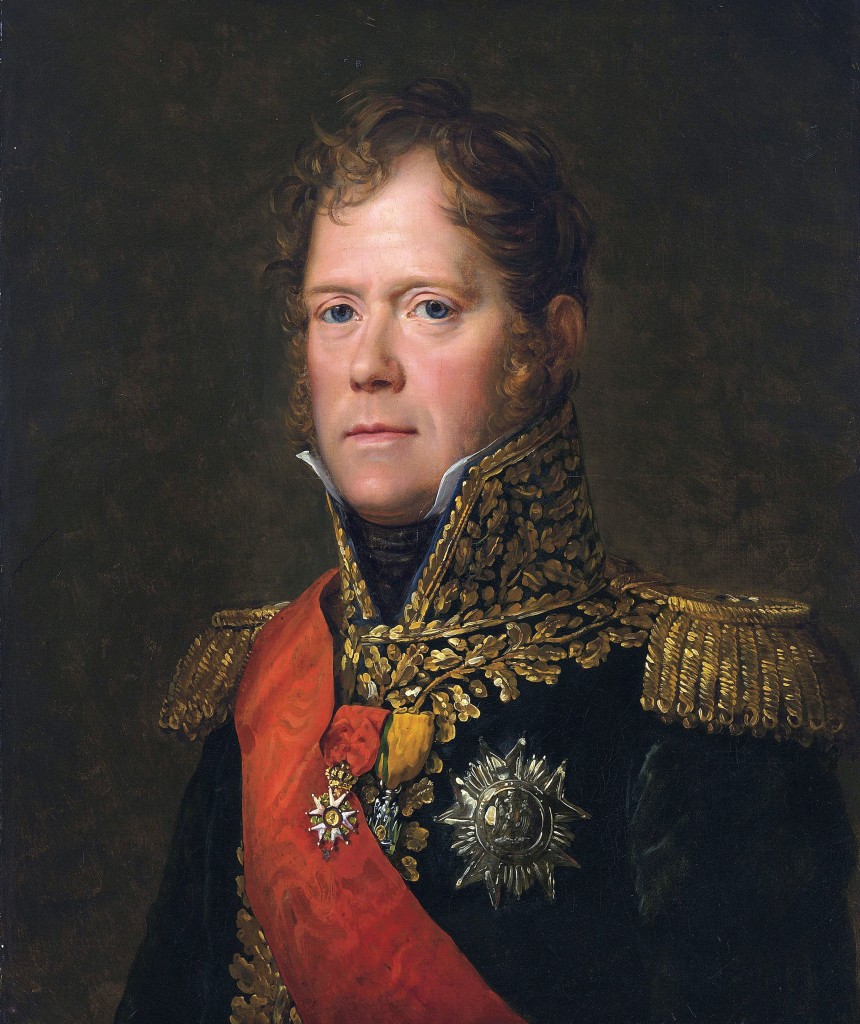 Napoleon’s general, and later Marshal of the Empire, Michel Ney was born the son of a cooper (a wooden-barrel maker). Originally a non-commissioned officer, Ney rose through the ranks due to his courageous leadership in battle. Tradition holds that he was the last Frenchman to leave Russian soil during the disastrous retreat from Moscow in 1812. For that, Napoleon nicknamed him “the bravest of the brave.”
Napoleon’s general, and later Marshal of the Empire, Michel Ney was born the son of a cooper (a wooden-barrel maker). Originally a non-commissioned officer, Ney rose through the ranks due to his courageous leadership in battle. Tradition holds that he was the last Frenchman to leave Russian soil during the disastrous retreat from Moscow in 1812. For that, Napoleon nicknamed him “the bravest of the brave.”
His performance in subsequent years is more ambiguous. In 1814, he helped force Napoleon’s first abdication, telling the Emperor that the Army wanted peace and would obey its chiefs rather than the Emperor himself. Napoleon then accepted exile on Elba, and the Bourbon dynasty was restored to power. The new king, Louis XVIII, rewarded Ney with honors.
Ten months later, Napoleon escaped his exile and started his 500-mile march to Paris, gathering soldiers along the way. Ney bragged to Louis XVIII that he would bring “Napoleon to Paris in a iron cage.” However, when Ney encountered Napoleon, Ney’s soldiers deserted him to join the Emperor’s forces. Napoleon, in his typical fashion, forgave Ney and reinstated him as a Marshal of his army.
The Battle of Waterloo took place three months later. Ney is often blamed for Napoleon’s defeat on that day. It’s true that Ney and his forces were not where Napoleon had designated they should be and that Ney diverted other French troops away from the main fighting. That might have been enough to tip the balance against the French in a battle even Wellington called a “near-run thing.”
If Ney contributed to Napoleon’s loss at Waterloo, he ended up paying the ultimate price, as you shall see at the conclusion of this poem:
To a Young Girl in Washington Square Park*
A poem by George Green
Lolling beneath the Garibaldi statue,
you look like some pre-Raphaelite Cordelia,
except you’re tarted up for rock and roll.
Your beauty is the barrel you’ll go over
 the falls in, and you’re copping now, I see—
the falls in, and you’re copping now, I see—
I hope it’s only pot. Oh I would row
you back to Astolat, and swiftly too,
but that’s just not my job. You’re on your own,
And while you gambol off to get your buzz,
the statue tries to pull its damaged sword,
snapped off by hooligans eons ago.
That sword reminds me now of Marshal Ney,
who charged at Waterloo with half a saber
brandished above his powder-blackened head.
Five horses fell from under him, before,
unscathed, he made it out, at last, on foot,
only to find disaster on the roads,
and gallantry in short supply; though he
would tramp along, apparently unshaken,
to Paris and a Bourbon firing squad.
*Copyright 2012 by George Green. Reproduced with permission, from Mr Green’s poetry volume, Lord Byron’s Foot, published by St Augustine Press: www.staugustine.net. I highly recommend the book.

Pingback: 200th Anniversary of Napoleon Bonaparte’s Loss at Waterloo - Finding Napoleon
Pingback: Napoleon Bonaparte, A True Corsican? - Finding Napoleon
I was always told by my mother that she was related to Field Marshal Ney ,and that he came to England and changed his Name to Nay. but from what I read he didn’t come to England . So now confused.
I hadn’t heard the rumor that he went to England, just the one about him coming to America. The truth is that he probably died in a firing squad in France. We’ll probably never know for sure.
Good luck finding out about your heritage! My own is turning out to be different and more interesting than the family legends.
Pingback: 200th Anniversary of Napoleon Bonaparte’s Loss at Waterloo - Margaret Rodenberg